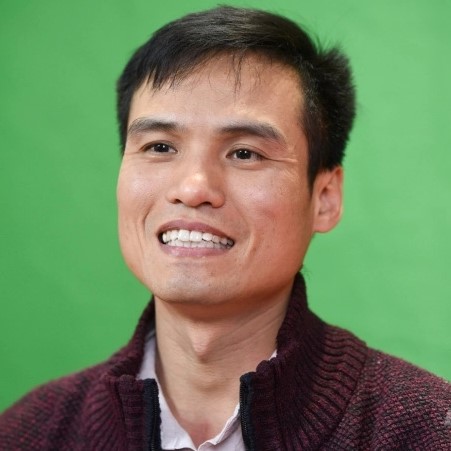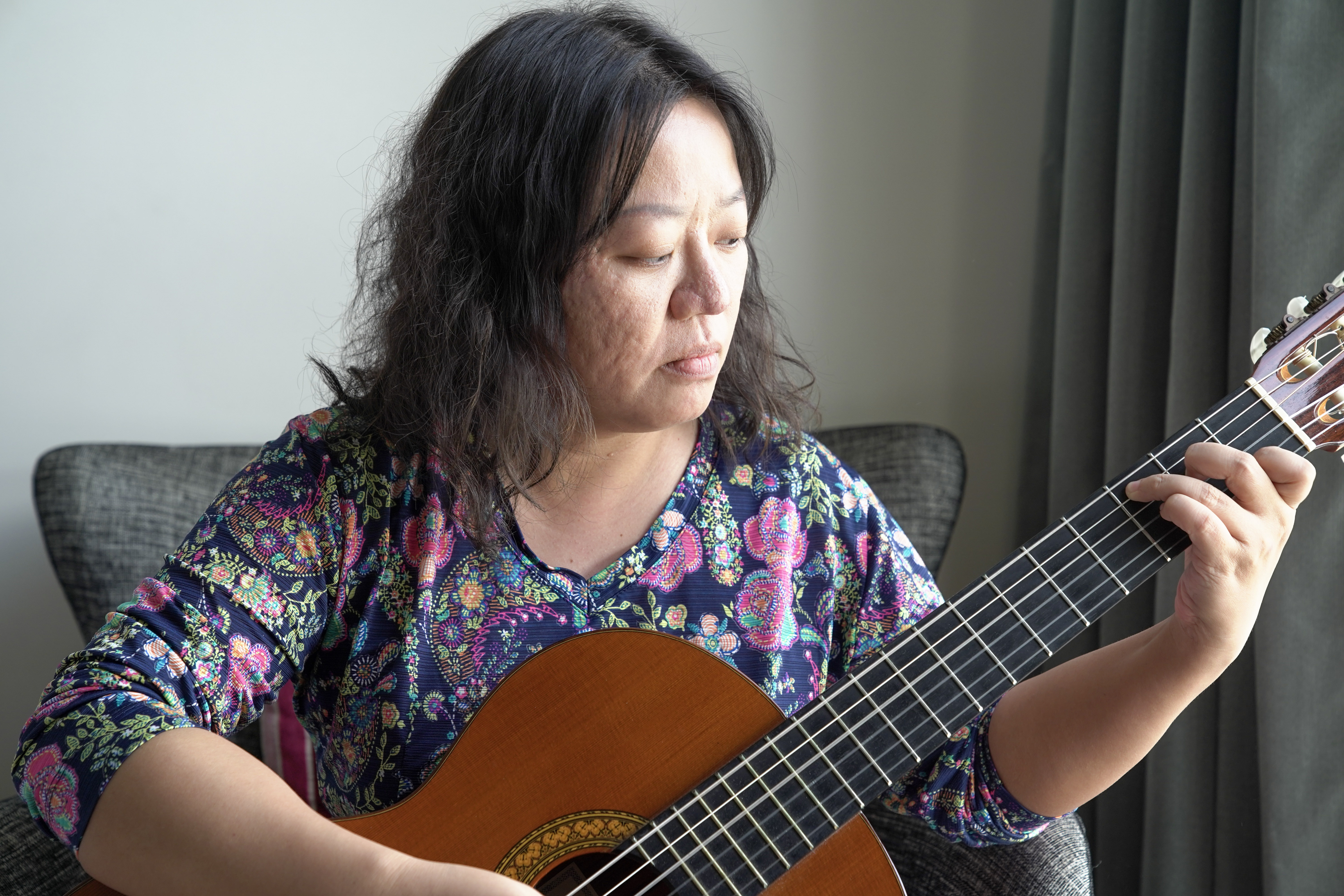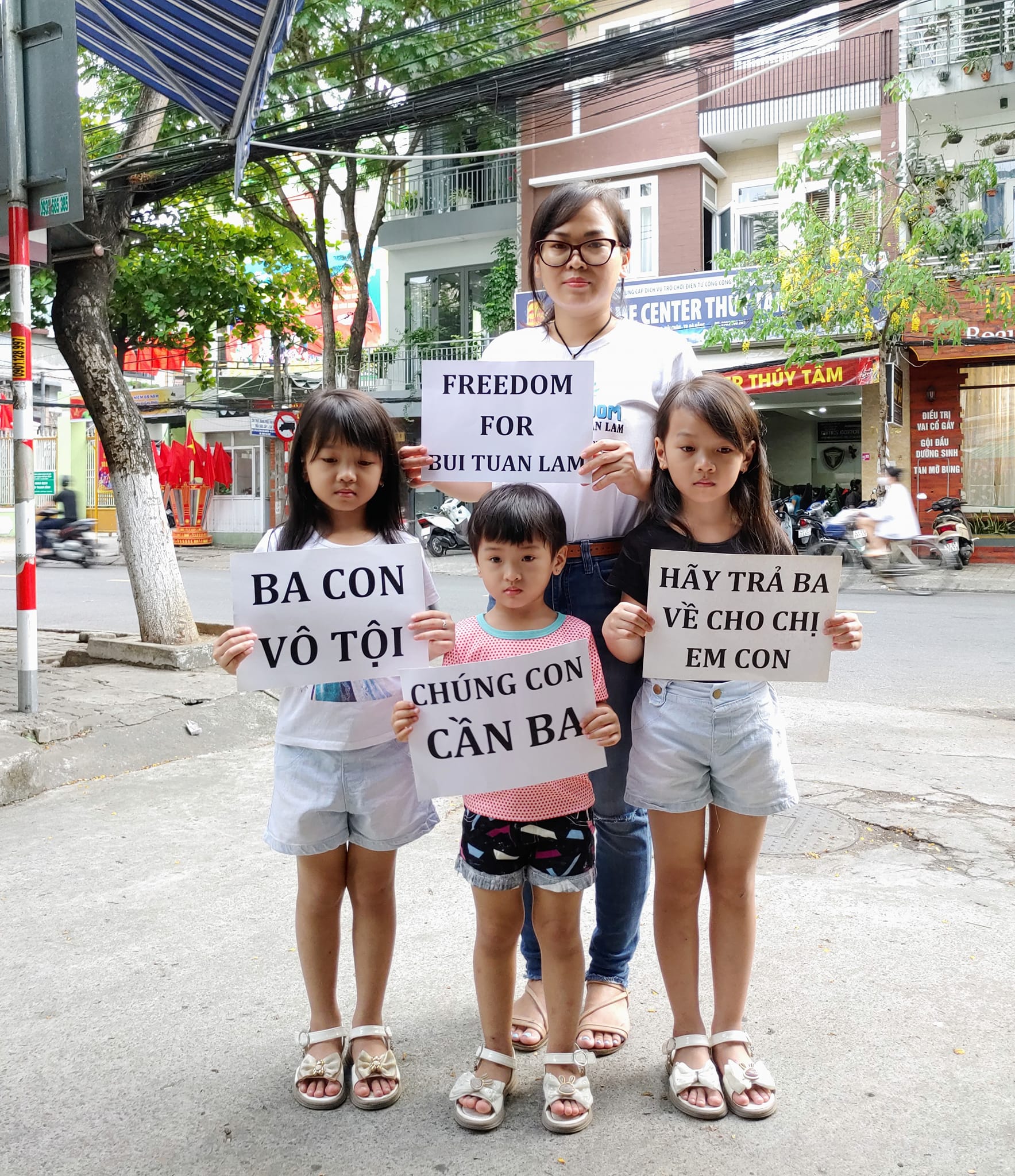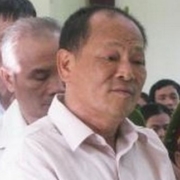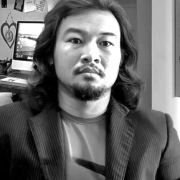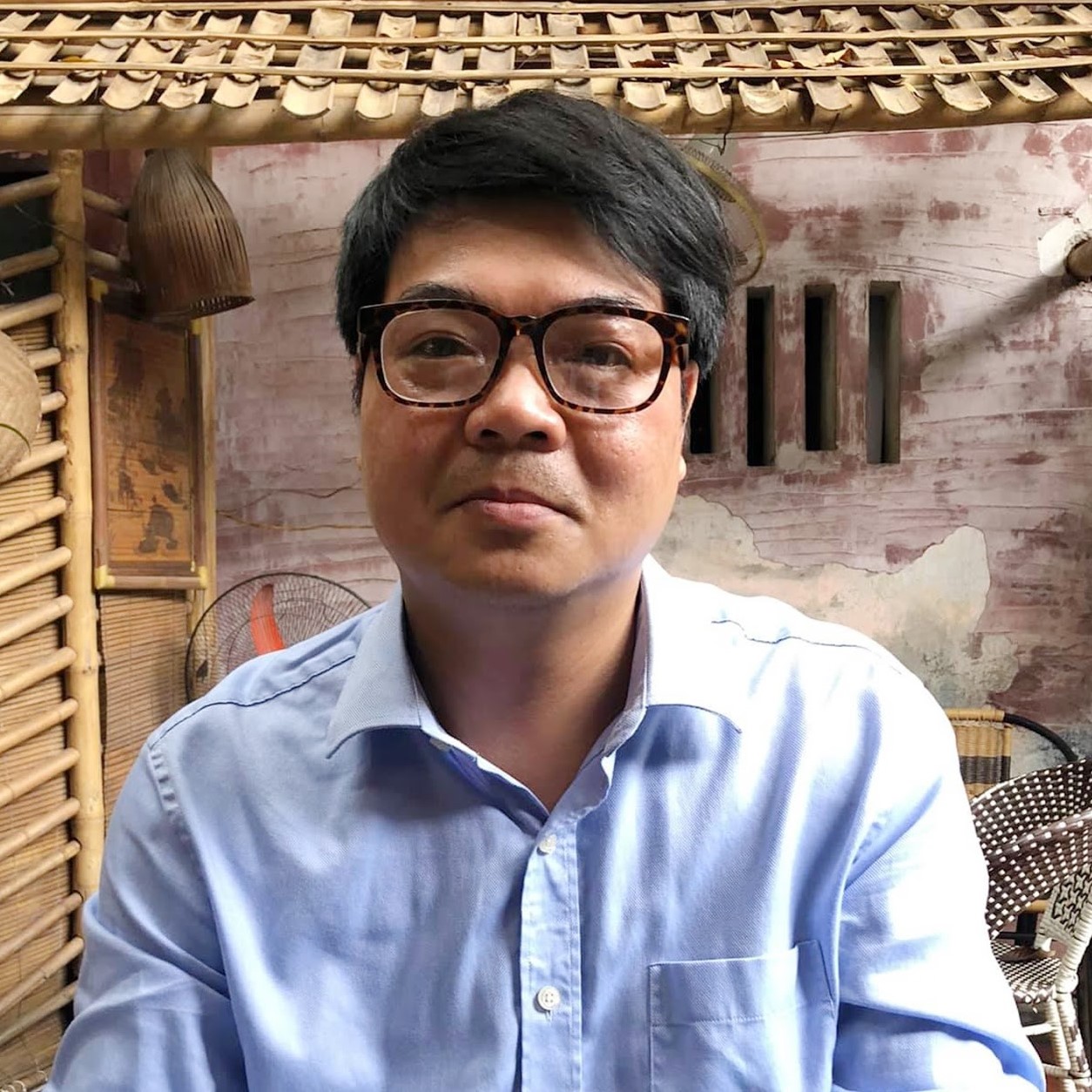Lawyer Notes from Can Thi Theu & Trinh Ba Tu’s Appeal Trial
On December 24, 2021, the Court of Appeals in Hoa Binh heard the case of Can Thi Theu and her son Trinh Ba Tu. They were arrested in June, 2020, for helping Dong Tam villagers gather information about the deadly police assault on the commune in January 2020. As a result, both were sentenced to 8 years in prison plus 3 years of probation for “anti-State propaganda.” The appeals court upheld the prior sentences.
The following accounts are notes taken at the trial by two lawyers on the defense team. They give a glimpse into the judicial system in Vietnam and illustrate how these show trials don’t even follow the most basic procedures as required by Vietnamese law.
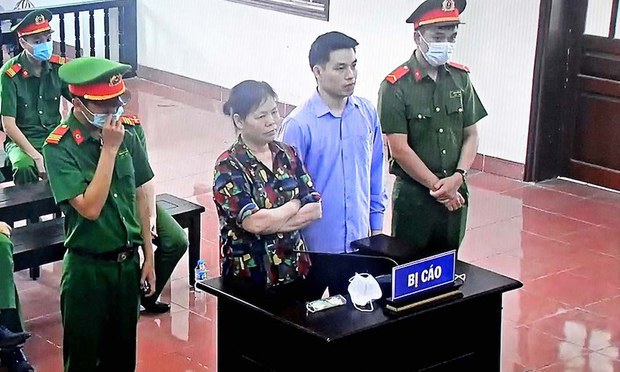
Theu and Tu at their first instance trial in May 2021, Source: State Media via RFA
Notes taken by attorney Tuan Ngo:
Bright spots
- The trial was well organized. Security police were everywhere but they were friendly and much more agreeable than at other places.
- Throughout the trial, attorneys were allowed to talk freely with their clients without any interference. While waiting for the verdict, Mrs Theu was allowed to speak privately with her lawyer and was shown pictures of her grandchildren.
- During the trial, especially in the morning session, the judges respected the defendants and allowed them to speak without having to avoid the “no trespassing area.” This was a rare occurrence in these trials.
- There were some tense moments, but there also were light moments with laughter from the defendants or the judges.
Dark spots
- The court did not provide the attorneys with laptops and electronic devices despite numerous previous requests; this made it exceedingly difficult for us to record the proceedings.
- It was a “vegan” trial without any meat; only the two defendants; no witnesses; no state examiner; no exhibits; no evidence to support defendant’s argument.
- Towards the end of the trial, the panel of judges started to lose patience with the defendants and their lawyers; the proceedings became more negative and more tense:
- The presiding judge repeatedly interrupted the defendant while he or she spoke;
- The presiding judge cut short defendants’ closing statements.
This made Mrs Theu upset, and she repeated some of the things she said in the first-instance trial, such as:
- “If you don’t let me speak, why don’t you just tape my mouth shut and pull out the predetermined verdict that you already have in your pocket!”
- “The presiding judge ‘talks tough’ to counsel, so I have to ‘talk tough’ back.”
- “The presiding judge did not allow counsel to speak and then proclaimed that counsel chose not to speak, so I and attorney Dang Dinh Manh had to continuously object but to no avail.”
- The prosecutors did not respond to or counter any of the arguments by the defense, and yet they were never given a warning from the presiding judge despite strong objections from the defense. Perhaps the panel of judges had been given “a warning” after they had earlier in the day allowed the defendants to speak too freely and about subjects deemed too “sensitive.”
Overall, even though there were some bright spots, they still were overwhelmed by the dark spots; the negatives were more than the positives. Any hope of fairness and transparency that can lead to the truth and protect the principle of “presumed innocence” (according to the Criminal Code) is still a faint and unreachable goal for us. Nevertheless, I still hold out hope that this situation will gradually change and the country will move more toward the light.
Notes taken by attorney Dang Dinh Manh:
December 24, 2021. Christmas Eve. The High Court of Hanoi held the appeal trial for Can Thi Theu and Trinh Ba Tu at the Hoa Binh courthouse; the two have been convicted of “anti-State propaganda” according to Article 117 of the Criminal Code.
There were four attorneys for the defense: Dang Dinh Manh; Ngo Anh Tuan; Le Van Luan; Pham Le Quyen.
Mrs Theu’s family arrived at the courthouse but were immediately taken by security to a medical clinic in Thi Lang precinct and kept there until the trial concluded.
In the courtroom, Mrs Can Thi Theu and her son Trinh Ba Tu appeared healthy.
All through the investigation phase as well as during the first-instance trial and now in this trial, both defendants rejected the accusations against them and maintained that they’re innocent.
Prosecution recommended that the sentences against the two defendants remain the same: 8 years in prison plus 3 years of probation.
The defense attorneys let the defendants speak for themselves first. Accordingly, both Can Thi Theu and Trinh Ba Tu each gave a very strong argument in their defense, raising several important subjects in a very direct and frank manner, using some terms that had never been heard in a Vietnam courtroom before.
Sharing the views of their clients, the defense attorneys presented a series of analyses on violations of prosecutorial procedures, along with assessments of the evidence related to the case. Accordingly, all agreed that their clients were not guilty of the charges and should be immediately set free. Furthermore, defense suggested that the court recommend to the Party and the legislative body to review the existence of Article 117 and adjust the policies on land reclamation which is the root cause of all the root causes that had led to this trial.
Concluding the morning session, the panel of judges announced that the trial would resume at 14:00 for the Q&A session.
At 14:00, a representative for the prosecution spoke very briefly in just a few sentences: The issues raised regarding prosecutorial procedures have been examined by the panel of judges, the Procuracy concluded that the charges and the first-instance trial were all valid. The Procuracy acknowledged that a part of the reason for the trial was that Mrs Theu and Mr Tu were upset because the renumeration for their land was inadequate, but they chose to fight back using illegal means.
Following up, the presiding judge shocked the defense by announcing the conclusion of the Q&A session, explaining that there was no need to hear further exchanges or arguments.
Attorney Dang Dinh Manh, followed by attorney Ngo Anh Tuan, stood up to protest the fact that they and their clients were not allowed to ask questions.
The presiding judge ordered the attorneys to sit down and told the defendants to make their closing statements.
After deliberation, the panel of judges upheld the original sentences of 8 years of prison plus 3 years of probation for both Can Thi Theu and Trinh Ba Tu.
The judge’s last words were drowned out by the voices of the two defendants as they repeatedly shouted out “Đả đảo!” (Down with…).
The trial concluded at 16:05.
Hoa Binh, December 24, 2021
Dang Dinh Manh, Atty
Translation © 2021 The 88 Project


